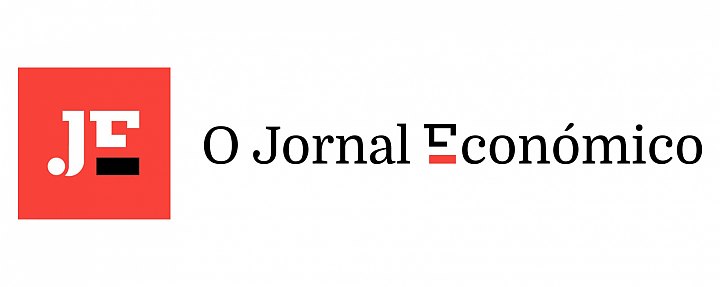Opinion
The ECB needs political guidance on secondary objectives
While EU Treaties clearly stipulate that the ECB “shall support the general objectives of the European Union”, it is not appropriate to simply stand by, wishing that the ECB will use its discretionary power to act on them. Political institutions of the EU should prioritise the secondary goals to legitimise the ECB’s action.
This opinion was originally published in Le Monde, O Jornal Económico, Makronom, Euractiv, De Tijd, Il Sole 24 Ore, NRC Handelsblad and El Economista.
The ECB is facing a paradox. On the one hand, the ECB has failed to achieve its price stability mandate, as inflation has been below 2% for the past decade. And despite this blatant failure, the ECB is now thinking about doing more than just looking after stable prices. For instance, Christine Lagarde has been raising expectations that the ECB will take concrete action against climate change when completing the ECB’s strategy review.
In theory, the European Treaties already confer large power to the ECB to act on other goals than its primary mandate of price stability. Article 127 TFEU stipulates that without prejudice to price stability, the ECB “shall support the general economic policies in the Union with a view to contributing to the achievement of the objectives of the Union as laid down in Article 3 of the Treaty on European Union.”
Over the years, this Treaty provision has often been mentioned by those who want to push the ECB to act in various directions. Typically, trade unions want the ECB to pursue full-employment more forcefully, while NGOs wish the ECB would do more to fight climate change or inequality. As a matter of fact, the breadth of objectives mentioned in Article 3 of the TEU – ranging from security, equity and economic growth to environmental protection, innovation and many other laudable EU objectives – opens the door to an infinite number of possible objectives for the ECB.
To some extent, such flexibility is useful and convenient. It leaves the door open to all possible winds of changes. But at the end of the day, too much vagueness is also leading to inaction. Indeed, by cutting through the vagueness and explicitly justifying its monetary policy stance based on a secondary objective, the ECB would be perceived as making political decisions, and hence prefers to stay away from that.
The neglect of the secondary objectives is understandable when considering that the ECB mandate is blank on guidance on how these secondary objectives should be ranked and attained. The ECB suffers from “democratic authorisation gaps”, i.e. the drafters’ failure to foresee the situations the ECB currently finds itself in: having to decide between different goals and tools that all have far-reaching consequences beyond what the Treaty writers anticipated.
While the ordering is clear between the ECB’s primary price-stability mandate and its supervisory duties, whether and how the ECB should act on its secondary objectives is much more blurred and subject to difficult trade-offs. Should the ECB favour jobs or climate? Sometimes using different tools to achieve different objectives could be possible but sometimes it is not the case. Dealing with such trade-offs is inherently a political task and the ECB should welcome some explicit guidance on which secondary objectives are the most relevant for the EU in a particular situation. As former ECB Board member Benoit Cœuré once said: “Setting priorities between different objectives is the definition of policy […] and that is what parliaments do”.
This is why, to add legitimacy for the ECB acting on its secondary objectives, a formal procedure involving both the Council and the European Parliament should be developed in order to specify and prioritise the policy areas where the ECB would be expected to deliver.
In practice, the existing channels of accountability between the European Parliament and the ECB already provide a conduit for such prioritisation. The Parliament could use its annual resolutions on the ECB to vote a ranking of three top secondary objectives, and could choose to refocus the quarterly “monetary dialogues” hearings with the ECB President to carry out regular checks on the delivery of the thus-interpreted mandate.
In this manner, the ECB would receive renewed legitimacy for an expanded set of goals. It could work efficiently, deploying its full toolkit towards a clear and politically defined set of policy objectives, guided by democratic institutions.
The ECB’s mandate was established three decades ago, when none of the current challenges were foreseen. It is therefore only natural that the ECB’s mandate today is subject to different and sometimes contradicting interpretations across the euro area. While the European Court of Justice has a role to play in identifying safeguards and limits to ensure that the ECB respects the boundaries set by the EU Treaties, it should not decide in the place of elected policymakers on the future orientations of the ECB’s mandate.
The European Parliament has taken an important step in December 2020 by requesting to put in place an inter-institutional agreement on the ECB’s accountability framework – which to date is largely informal. The upcoming negotiations between the ECB and the Parliament, alongside the ongoing strategy review of the ECB, offer a unique opportunity to enhance a strong accountability process directly with the ECB, in full respect of its independence.
Republishing and referencing
Bruegel considers itself a public good and takes no institutional standpoint.
Due to copyright agreements we ask that you kindly email request to republish opinions that have appeared in print to [email protected].
















